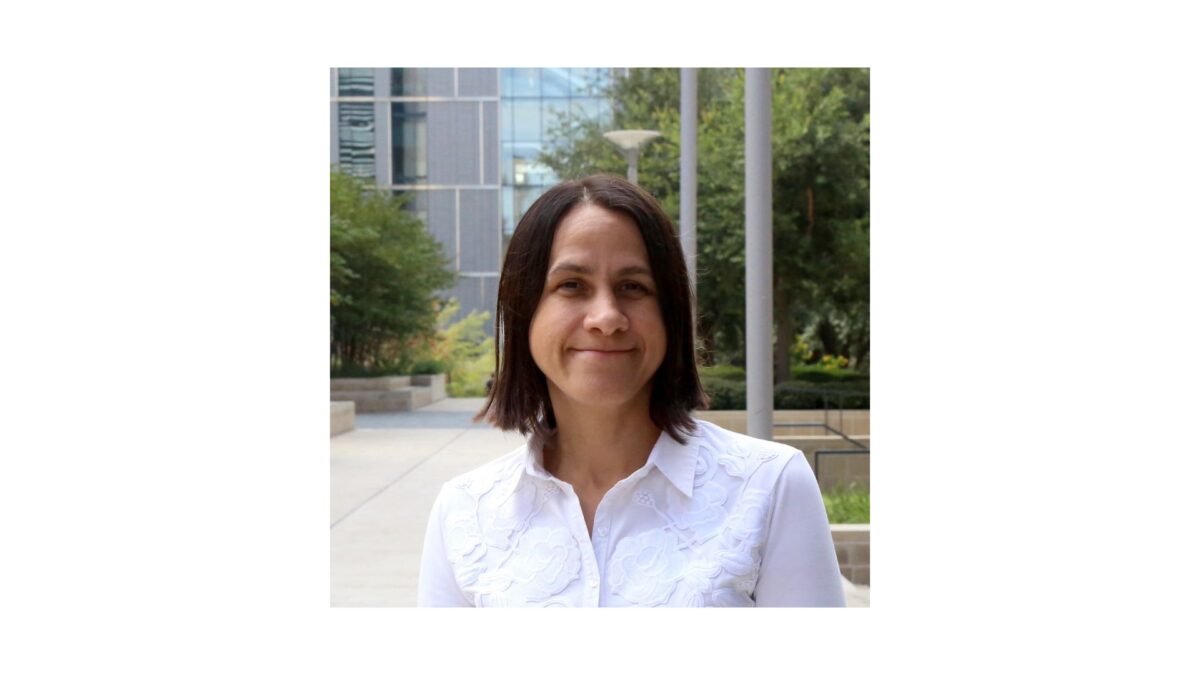
- This event has passed.
McCabe Lecture: NSF ERC Environmentally Applied Refrigerant Technology Hub (Mark B. Shiflett, Univ. of Kansas)
April 11 @ 9:30 am - 10:30 am

Abstract:
This presentation will provide an overview of a new U.S. National Science Foundation (NSF) Engineering Research Center (ERC) named EARTH (Environmentally Applied Refrigerant Technology Hub). Heating, ventilation, air conditioning, and refrigeration (HVACR) are essential to human quality of life but exact a significant environmental toll. Most current refrigerants are high-global-warming-potential (GWP) hydrofluorocarbons (HFCs) with up to 4000 times the impact of CO2. High HVACR-associated energy consumption and HFC leaks account for 7.8% of total greenhouse-gas emissions. HFCs’ chemical stability, combined with challenges associated with separating HFC refrigerant blends into components, make sustainable recycling and repurposing of these refrigerants difficult. In addition, tightening U.S. regulations have created a market for illegal HFC imports. The American Innovation and Manufacturing (AIM) Act mandates an 85% phasedown of HFCs over the next two decades, but these challenges threaten that goal. Even if the technical goals are met, implementing such sweeping changes will require societal and industrial adoption and a greatly expanded U.S. HVACR workforce. ERC EARTH will use a team-science approach to bring together talent in engineering (chemical, environmental, mechanical, and materials), architecture, business, chemistry, economics, geography, history, law, psychology, and entrepreneurship in one Innovation Ecosystem to co-create convergent technical and societal solutions with industry partners, technical and community colleges, professional organizations, regulators, and end users. EARTH’s vision is to create a transformative “sustainable refrigerant lifecycle” to address the HVACR ecosystem’s key technical and societal challenges: (1) lowering HFC emissions, (2) creating safe, property-balanced replacement refrigerants, and (3) increasing HVACR energy efficiency. In addition, EARTH will work toward workforce goals co-created with industry to increase the number of HVACR engineering researchers and will involve community and technical colleges to address workforce gaps through coordinated outreach and training, with a focus on women, native people, and tribal nations.
With stakeholder input and integration across fundamental knowledge, enabling technologies, and system testbeds, EARTH will convergently address the societal problem of refrigerant environmental impacts. Refrigerant leaking and venting will be addressed by new separation, conversion, security-tagging, and waste-refrigerant-reuse technologies, spurring sustainable decision-making and new startups. Novel, safe, property-balanced, low-flammability, low environmental-impact refrigerants will be explored with molecular simulations of candidate fluids, development of solid-state materials, regulatory-impact economic analysis, and corporate-innovation insights. Higher HVACR energy efficiency will be obtainable through new energy
efficient dehumidification materials, refrigerant-specific leak sensors, alternative refrigeration cycles, systems modeling, lifecycle analysis, technoeconomic analysis, and exploration of corporate, environmental, social, and governance activities. Crosscut themes – Synthesis & Characterization, Behavior & Policy, and Modeling & Analysis – will integrate research with all ERC pillars. The EPA estimates the AIM Act’s successful implementation from 2022 to 2050 will net benefits of $272 billion and emission reductions of 4.6 billion tons of CO2. It will also create 150,000 new jobs, increase U.S. manufacturing by $39 billion, and prevent a 0.5 °C increase in global temperature. EARTH will enable and accelerate these benefits with new technologies, data-informed regulatory guidance, and industry and stakeholder buy-in. By addressing the technical, environmental, and societal challenges of replacing high-GWP refrigerants, EARTH’s research will generate scientific knowledge, engineering products, environmental-policy recommendations, and industry and stakeholder behavioral changes to stimulate this HVACR-ecosystem transformation.
More information can be found online about EARTH (https://erc-earth.ku.edu), the Wonderful Institute for Sustainable Engineering at the University of Kansas (https://wise.ku.edu), Icorium Engineering Company (https://icoriumengineering.com), and the Shiflett research group (https://shiflettresearch.com).
Biography
Mark B. Shiflett is a Distinguished Foundation Professor in the Department of Chemical and Petroleum Engineering at the University of Kansas (KU). He is the director of the new National Science Foundation Engineering Research Center – EARTH, which stands for Environmentally Applied Refrigerant Technology Hub. He is also the director of the Wonderful Institute for Sustainable Engineering at KU and the Editor-in-Chief for the Journal of Ionic Liquids. He is also cofounder and Chief Science Officer for two companies, Icorium Engineering Company and Pvera Tech, LLC. Professor Shiflett joined KU as a Foundation Professor in August 2016 after retiring from the DuPont Company. Professor Shiflett worked for DuPont for 28 years and was a Technical Fellow in the Central Research and Development organization which is located at the Experimental Station in Wilmington, Delaware. Professor Shiflett was also an adjunct professor at the University of Delaware in the Department of Chemical and Biomolecular Engineering. Professor Shiflett received his Ph.D. and M.S. degrees in chemical engineering from the University of Delaware in 2001 and 1998. He received his B.S. degree in chemical engineering from N.C. State University in 1989. Professor Shiflett is an inventor on 48 U.S. patents and has published 150 articles with over 10,000 citations on his research in both academia and DuPont. He was awarded the DuPont Bolton Carothers award in 2005, the ACS Hero of Chemistry award in 2006, and the University of Delaware presidential citation in 2007 for his development of hydrofluorocarbon refrigerant mixtures to replace chlorofluorocarbons, which were linked to the depletion of the Earth’s ozone layer. Professor Shiflett was elected in 2014 to be a Fellow in the American Institute of Chemical Engineers, in 2016 to be a Division Fellow in the American Chemical Society, and in 2018 to be a Fellow in the National Academy of Inventors for his significant professional accomplishments and contributions to the chemical engineering profession. Professor Shiflett received the American Institute of Chemical Engineers Institute award for Industrial Research in 2016 for the development of non-ozone-depleting refrigerants, which have led to the healing of the Earth’s ozone layer, new applications using ionic liquids, and mentoring and educating chemical engineers. Professor Shiflett is a licensed professional engineer in the State of Delaware and his research at KU focuses on developing sustainable processes and products. To learn more about Professor Shiflett and his research group you can visit their website: https://shiflettresearch.com.
